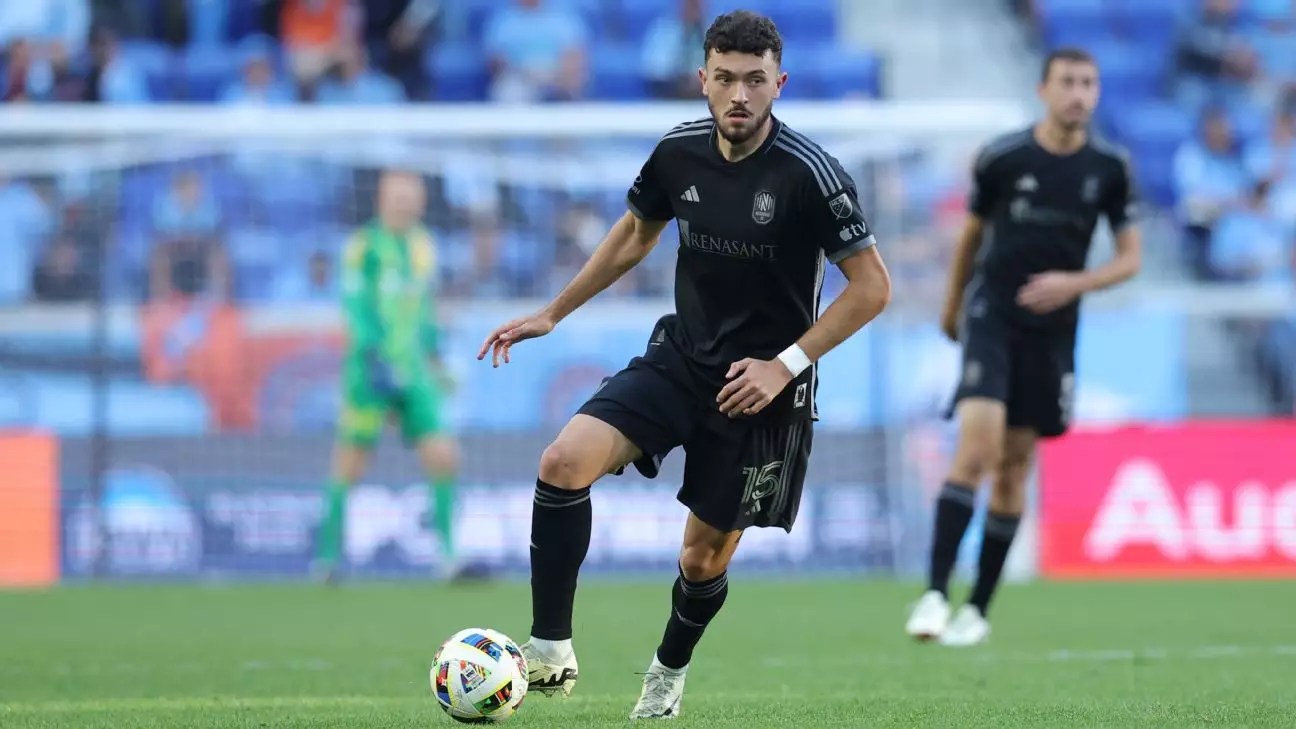The Australian national football team, affectionately known as the Socceroos, is currently undergoing significant changes as they prepare for the upcoming AFC World Cup qualifiers. The recent addition of Nashville SC’s Patrick Yazbek to the squad, following Massimo Luongo’s unfortunate withdrawal due to an ankle injury, highlights the team’s dynamic roster adjustments. With the qualifiers looming against formidable opponents like China and Japan, the need for adaptability and fresh talent has never been more critical.
Luongo’s injury is a blow to the squad, especially considering this was his first call-up since he reversed his retirement decision. His absence leaves a notable gap in the midfield, a position that has already faced challenges with the sidelining of Connor Metcalfe due to his own leg injury. The unpredictability of injuries and player availability reinforces the importance of a deep and versatile squad as the team embarks on this vital journey.
In light of Luongo and Metcalfe’s unavailability, new coach Tony Popovic’s decision to call up both Yazbek and veteran midfielder Luke Brattan exemplifies his strategy to blend youth and experience. Yazbek’s selection may provide a fresh perspective and vitality to the midfield game, while Brattan brings seasoned insight and maturity, both of which are crucial as the Socceroos aim for a strong showing in their upcoming matches.
These strategic substitutions reveal Popovic’s broader vision for the team, integrating new talents who can achieve not only immediate results but also contribute to the long-term development of the squad. The goal must be clear: secure points in the upcoming matches against China and Japan to enhance their standings in Group C of the qualifiers, where every point counts, and competition is fierce.
Australia’s situation in the qualifiers is precarious. With only one point from their first two matches, the team finds itself at a disadvantage, sitting fifth in Group C—five points behind leaders Japan. The stark reality of the qualifiers indicates that a win against China is not just a hope; it is a necessity. Falling further behind could mean elimination from contention for the World Cup, so the pressure is mounting just as the players prepare to take the field.
Midfielder Riley McGree expressed the collective mood within the camp, emphasizing the necessity to break down defenses and adapt to varied playing styles. The Socceroos face challenges posed by teams that often adopt conservative, defensive strategies against them. This requires ingenuity and coordination, aspects McGree believes the team possesses. However, translating potential into performance is the ultimate test.
Addressing the mental aspect of high-stakes competition, McGree provided insight into how players can harness pressure as a motivating force. While the magnitude of representing Australia looms large, he highlights the importance of maintaining perspective: playing football, while a significant accomplishment and challenge, is not the most arduous task individuals face in life.
The notion that “pressure is a privilege” resonates deeply, underscoring an important mindset that could fortify the Socceroos’ resolve. Embracing high expectations can transform nervous energy into performance-enhancing adrenaline. This perspective shift could be pivotal as they strive to secure crucial qualification points.
As Tony Popovic steps into his role as head coach, he faces the critical task of navigating this transitional phase while fostering a spirit of unity and resilience within the squad. Players must not only focus on immediate performance but also embrace the broader objectives of evolution and growth as a team. McGree’s insights on Popovic’s potential to instigate a fresh direction signify optimism for the future.
The upcoming matches against China and Japan represent more than just qualification hurdles; they are opportunities for the Socceroos to demonstrate their evolution under new leadership, potentially routing a path toward more successful qualification campaigns. The integration of Yazbek, Brattan, and the remaining squad members could be the key to unlocking Australia’s full potential on the road to the 2026 World Cup.


Leave a Reply